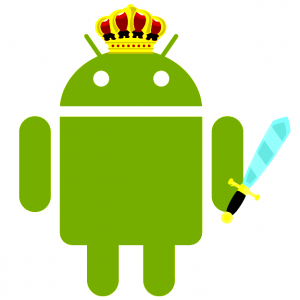'Slightly closed Android ecosystem could be reality by the end of 2015'
 That's the prediction Aapo Markkanen, ABI senior analyst, makes today. It's the right call, as Larry Page starts his third year returning as Google CEO. Page resumed duties on April 4, 2011, and the company's direction took a hard turn. Business is more aggressive, altruistic goals less and so-called openness a waning thing. As I asserted a year ago, "Google has lost control of Android". That Page and Company would try to wrestle back control is no surprise.
That's the prediction Aapo Markkanen, ABI senior analyst, makes today. It's the right call, as Larry Page starts his third year returning as Google CEO. Page resumed duties on April 4, 2011, and the company's direction took a hard turn. Business is more aggressive, altruistic goals less and so-called openness a waning thing. As I asserted a year ago, "Google has lost control of Android". That Page and Company would try to wrestle back control is no surprise.
Facebook Home is good reason. The user interface debuting April 12 takes over the more app-centric Android homescreen, putting the social network first before anything else, including Google+. Facebook's OEM program could put Home on many more devices. HTC already is on board with the First smartphone. Then there is Samsung, which during fourth quarter accounted for 42.5 percent of all Android handset sales, according to Gartner. TouchWiz, which gets a big update with forthcoming Galaxy S4, is the user experience -- not that determined by stock Android. These are but two examples of many.
The OEM Problem
Amazon Android for Kindle tablets is another example. But the most disturbing, perhaps, comes out of China, now the world's largest smartphone market, according to IDC. Markkanen observes that Chinese phone maker Yandex "appears to be keen to use Android UI tweaks -- combined with an app storefront -- for the benefit of its own vertical integration. The firm’s 'Shell' is available as a downloadable overlay, and it’s also available to potential OEM and carrier partners. If Yandex is successful it could quickly weaken Google’s foothold in Eastern Europe, Central Asia, and even Turkey".
Facebook Home and Yandex Shell are distributed to end users via Play store, something Google could easily block. But OEM distribution is another matter, which, like Samsung TouchWiz, would require intervention from Open Handset Alliance. The more OEMs that preinstall alternative homescreen UIs and the more successful sales, the more control Google loses of Android.
Changes are already afoot. "With hindsight, Google's decision to not certify Acer’s Aliyun devices as Android was one of the most significant strategic developments in the OS space in 2012", Markkanen asserts. "Google made it clear that it’s ready to play hardball if it concludes that an OHA member (in this case Acer) is about to cross a line, and did so in a deliberately vague manner, leaving a lot of scope for further, case-by-case interventions".
Remember, Android is fundamentally Google's gateway to mobile -- the hub around which the company's cloud services are consumed. China balks at the situation. In a paper posted one month ago, the country's Ministry of Industry and Information Technology condemns: "Our country's mobile operating system research and development is too dependent on Android...While the Android system is open source, the core technology and technology roadmap is strictly controlled by Google". I can't speak to the first part, but the latter absolutely is true.
How strange that Apple apologized to Chinese customers this week, but not Google.
Close the Door!
It's not a question of if Google exerts more control over Android but when. Nexus devices released in 2012 are carrots. But sticks surely will come. Google's corporate character is changing under Page. There is more accountability, less tolerance for frivolous projects, more focus on business and revenue goals, broader cross-integration of products and services, increased market aggressiveness, and tighter control of projects. The latter is about resetting priorities benefiting Google first, which in part means stepping back from some of the perceived openness that defined the company for a decade.
Simply stated: Google acts more like a monopoly by the day, and I'm struck by similarities seen about Microsoft in the last decade.
I've never been quite satisfied with the reasons -- lack of them, really -- for Andy Rubin stepping down as Android chief. The operating system was his baby after all, and in context of all the other changes taking place under Page's leadership, I have long suspected a rift between the men regarding the operating system's future. There is speculation far and wide that Google plans to bring together Android and Chrome OS. I disagree.
The philosophical winds are changing direction. Openness allowed Android to spread far and wide -- 750 million cumulative devices, according to Google -- but it's a knife that cuts both ways. Mixing metaphors, Google finds that you can't have your cake and eat it, too.
Markkanen expects "muscle flexing" that will be "gradual" but the timeframe depends "on how successfully Amazon, Facebook, Alibaba and others manage to exploit Android for their own purposes. Either way, a slightly closed Android ecosystem could be reality by the end of 2015. If Google finds that its lunch is being eaten it will have no problems acting even faster than that, despite of all the openness rhetoric we’ve got used to".
I see Rubin's exit as the canary in the coalmine. Google has too much invested in Android to let openness get in the way of broader business objectives.
